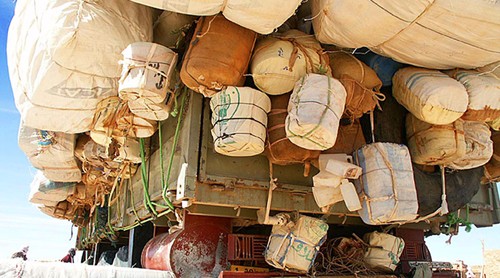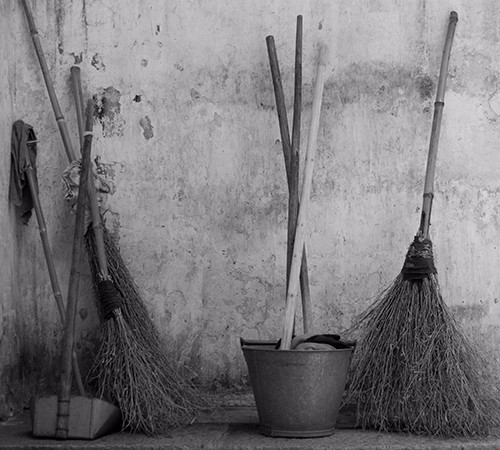Browse our Catalog
Make Less Mean More

Attachments...
We all have them. We are designed for attachment since our survival and safety depends on it, and as social creatures we long for a sense of worth, belonging and connection. Perhaps recognizing this, "Reach out and touch someone" was used once upon a time and for those old enough to recall as a tagline by the telecommunications company AT&T. But where is our need for this attachment, connection, belonging and to be touched lost in our belongings - our material possessions - as if they can possibly define our worthiness, offer love to us or reach out and touch. They do not and they cannot. If you think they do, it is only a facade. We define meaning to life - our things do not.
“Don’t worry about your stuff. Worry about making meaning instead.”
~Seth Godin
“Don’t worry about your stuff. Worry about making meaning instead.”
~Seth Godin
Look around - how many things do we own that don’t serve a purpose, add value or bring joy to our lives?
And this doesn't end with mere material possessions, we even do this within our social media networks - defining our value and how meaningful our lives are by how many "Likes" or “friends” we have on Facebook, how many Twitter or Instagram followers and endlessly on and on with a hunger for more and more that can never be satiated... But out of those “friends” and “Likes,” ask yourself, how many really are deeply meaningful and add value to your life? Having more does not equate to more – certainly not more meaning.
“I don’t care how many friends you have on Facebook or how many followers you have on Twitter. Those are not actual friends or truly followers. I care about how many people will miss you if you’re not back here again tomorrow.”
~Seth Godin
We can all ask ourselves, How much do we really need? Why do we need it? For what reason?
And, just how can we begin to slough off layers of superfluous and meaningless attachment for more meaningful connection?
Lucky for us, in walks this practice called minimalism – this idea that less is more – to rescue us from our endless, meaningless hoarding and vicious cycle of dissatisfaction. It is here in this open space, that we may begin to realize just why less is more – more meaningful that is; knowing we can be more with much less while offering gratitude to all that we do have.
“Happiness is not having what you want. It is wanting what you have.”
~Author Unknown
The Minimalists - Joshua Fields Millburn and Ryan Nicodemus - two leaders within the minimalist movement - define minimalism as such in their elevator pitch:
“Minimalism is a lifestyle that helps people question what things add value to their lives. By clearing the clutter from life’s path, we can all make room for the most important aspects of life: health, relationships, passion, growth, and contribution.”
Sure, we may be comforted by our favorite mug in the morning to drink our coffee or tea from or feeling sentimental about a gift we keep around as a reminder of our loving connection to someone or that may represent a positive memory, but what about the rest of the stuff that we accrue? That we become attached to? All the extraneous things devoid of purpose, meaning or joy that begin to pile up and burden us by the space they take up not only in our physical space but our mental and emotional space as well.
Perhaps, we feel that in having more things - these attachments - a feeling of self-importance and self-worth is generated. I have more stuff, so I must be worth more. But where is the point that our attachments begin to weigh us down becoming anchors and dead weight only to detract from and steal away our freedom rather than add worth and value?
“Minimalism is a tool that can assist you in finding freedom. Freedom from fear. Freedom from worry. Freedom from overwhelm. Freedom from guilt. Freedom from depression. Freedom from the trappings of the consumer culture we’ve built our lives around. Real freedom.”
~The Minimalists
Truth is, you cannot add value or be worth any more than the priceless human being that you are right now and always have been. We all come into this world with nothing, and we leave with nothing. It is time to let go of things that add little to no worth or value to our life so that we can realize what and who truly matters.
All of us here at E.H. Lynn Industries recently went through a purging of our work space due to a new cleaning service being hired, and though I could do more, it was certainly a beginning. Life is a journey though to be enjoyed - a process - rather than some endpoint to be reached. Don't worry, we'll all get “there” in due time, so there's no reason to speed up the process! Let's learn from each other and how we can grow deeper in meaning while letting go of attachments to things that do not add value, joy or serve our life. Look around - I bet you can name some things right now.
But as The Minimalists profess, it's more than merely de-cluttering. We need to go deeper than the What and uncover the Why:
"People should, however, be much more concerned with the why—the purpose behind decluttering—than the what. While the what is easy, the why is far more obscure because the nature of the why is highly individual. Ultimately, it has to do with the benefits you’ll experience once you’re on the other side of decluttering."
Otherwise, without the Why and addressing the real issue(s) at hand, we will only accrue more and more stuff again to try and fill some void or gap we think exists within our worthiness and belonging. But with minimalism, we can begin to feel free and in this freedom know that we belong simply by being here, and we don't need anything more than that. It is an internal notion though - not anything that comes from any amount of objects or material possessions. When we clear the clutter, we begin to realize this.
Intrigued? Motivated for change? Want to learn more?
While there are certainly plenty of articles to Google, a great place to continue this adventure is to hop on over to The Minimalists at http://www.theminimalists.com/, and be sure to watch the documentary, Minimalism: A Documentary About the Important Things, which more information can be found at https://minimalismfilm.com/.
And while minimalism is based on similar concepts and Joshua Fields Millburn and Ryan Nicodemus are two fine examples of minimalism, depending on your unique situation - whether it be age, single, married, a carload of children, renting or owning a home, travel the world - it may look different to you during varying life phases, so there are others out there with their own unique situations. Find one who resonates with you. This is just a start:
Leo Babauta: Description of Minimalism
Joshua Becker: Benefits of Minimalism
Courtney Carver: 25 Reasons You Might Be a Minimalist
Colin Wright: Minimalism Explained
Last But Not Least...
To ship off on this new adventure, here are a few tips by Joshua Fields Millburn and Ryan Nicodemus of The Minimalists I’ve summed up:



90-90 Minimalism Rule
With each possession that you own, ask yourself if you have used it in the last 90 days or if it is something that you will use within the next 90 days. If not - sell it, donate it or send it to the trash heap.
And, if you should find that 90 days seems too brief, try on 120 days or 6-months to start and maybe work towards 90-90.
Don’t allow your stuff to sabotage a more meaningful life - and most importantly...
Have fun!
The 20-20 Rule
Otherwise known as the “just-in-case” rule because we have a tendency to hold on to things just in case they are needed at some point in the future. For example, “I’m going to keep this hairdryer just in case I ever grow my hair out or know someone that will.” Meanwhile, you are bald and have never had long hair – ever.
If you can replace the “just-in-case” item for $20 or less and in less than 20 minutes from where you are at, it is time to wave goodbye to your attachment of “I may need this someday” junk.
And Finally…
Hold your horses (that is, if you haven’t gotten rid of them yet) - you don’t have to be a monk or ascribe to a life of asceticism.
"Simplicity is for (almost) anyone, not just a narrow group of ascetics or monks."
~The Minimalists
Minimalism isn’t about that at all. More so, it’s about having an open mind and the continuing search for what may bring further meaning into our life. Only you define that – not any amount of possessions you can attain. You won’t find meaning there – only from within.





